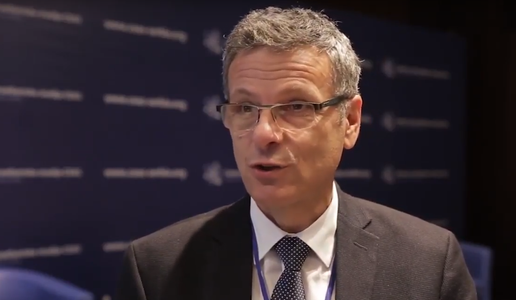Garcevic Publishes Article on Russia and Southeast Europe
Ambassador Vesko Garcevic, Professor of the Practice of International Relations at the Frederick S. Pardee School of Global Studies at Boston University, published a recent article as part of an online publication entitled The Role of External Non-EU Actors – Russia that was part of a series “Southeast Europe in Focus.”
Amb. Garcevic’s article, entitled “Russia’s Soft and Sharp Power in Southeast Europe – The Russian Hybrid Influence Operation in Montenegro,“ is part of the chapter Tools and Actors – Diplomacy and Security Policy. Other contributors to the publication include experts, faculty and practitioners from the US, Western and Eastern Europe as well as Russia.
From the abstract of the article:
Whether its role is described as spoiler or opportunist, the Kremlin strategy in the Balkans is to drag its rivals’ involvement down to a level that would make countries of the region subjects to Moscow’s interference. Not integrated into the European and Euro-Atlantic structures, burdened with endemic corruption, suffering from a democratic deficit, ethnic tensions, and protracted bilateral disputes, the Western Balkans’ countries are an ideal target for Russia. Preventive operations often seek to stop a state from taking certain actions, such as joining a rival alliance. The coup attempt in Montenegro, in October 2016, is an excellent example of the Russian hybrid influence operations in the Balkans. The goal of Moscow was to prevent NATO membership of the country. To prove it, this work focuses on Moscow’s attempts to influence Montenegro before the coup attempt. The paper argues that the coup plot in Montenegro is the culmination of more than a two-year-long hybrid influence operation, which includes a) Russian attempts to influence Montenegro through economic means; b) Moscow’s effort to establish a lasting naval (military) presence in Montenegro; c) The intensive media campaign; d) Deepening Russia’s influence on pro-Russian Serbian nationalists in Montenegro and open political and financial support for their activities. When overt means of influence appear to have been inefficient, a covert operation looks like a viable option. That is what happened in Montenegro.
During his diplomatic career, Amb. Vesko Garcevic dealt with issues pertinent to European security and NATO for almost 14 years. In 2004, he was posted in Vienna to serve as Ambassador to Organization for Security and Cooperation in Europe. He had been a Montenegro’s Ambassador to NATO from 2010 until 2014 and served as a Montenegro’s National Coordinator for NATO from 2015 until he joined the faculty at the Pardee School.
